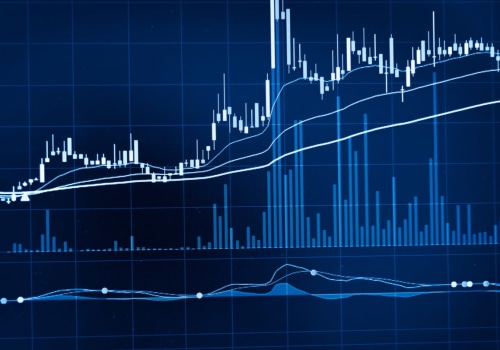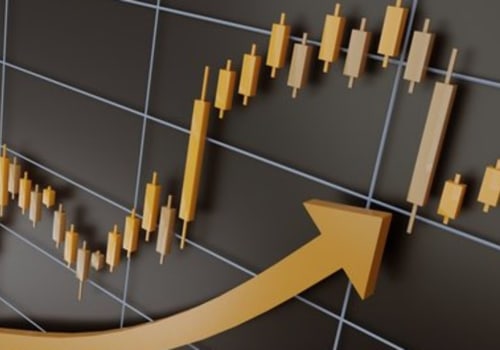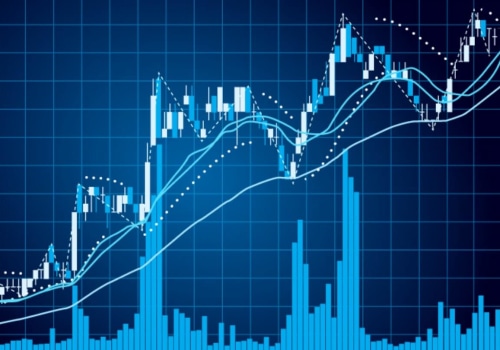In the world of forex trading, managing your account effectively is crucial for success. Many traders turn to forex account managers to optimize their trading strategies, improve risk management, and achieve consistent profits.
1. Understanding Forex Account Managers
Forex account managers are professional traders or financial firms that handle the trading activities on behalf of their clients. They possess extensive knowledge and experience in the forex market, allowing them to make informed trading decisions. By leveraging their expertise, forex account managers aim to generate profits for their clients while minimizing risks.
2. The Role of a Forex Account Manager
A forex account manager plays a vital role in overseeing and executing trading strategies on behalf of their clients. They analyze market trends, assess risk factors, and develop tailored trading plans based on their clients' investment objectives. Furthermore, account managers monitor market conditions, execute trades, and make adjustments to the portfolio as necessary.
3. Benefits of Hiring a Forex Account Manager
Hiring a forex account manager offers several advantages for traders:
a. Expertise and Experience
Forex account managers possess in-depth knowledge of the currency markets. Their experience allows them to navigate through market complexities and identify profitable opportunities.
b. Time-Saving
Trading in the forex market requires continuous monitoring and analysis. By delegating these responsibilities to a professional account manager, traders can save valuable time and focus on other aspects of their lives or businesses.
c. Risk Management
Account managers implement risk management strategies to protect the capital of their clients. They employ techniques such as diversification, stop-loss orders, and position sizing to minimize potential losses.
d. Consistency and Discipline
Forex account managers follow a disciplined approach to trading. They adhere to predefined strategies, avoid emotional decision-making, and maintain consistent trading practices, leading to more reliable and predictable results.
e. Access to Advanced Tools and Technologies
Account managers utilize sophisticated trading tools, analytical software, and market research to enhance their decision-making process. These resources enable them to identify trends, evaluate market conditions, and make informed trading decisions.
4. How to Choose a Forex Account Manager
Selecting the right forex account manager is crucial for the success of your investment. Consider the following factors when choosing a manager:
a. Track Record and Performance
Evaluate the past performance of the account manager by reviewing their trading history and verified results. Look for consistency, low drawdowns, and reasonable returns over an extended period.
b. Transparency and Communication
Ensure that the account manager provides regular updates on trading activities, portfolio performance, and any significant changes. Transparent communication fosters trust and enables you to stay informed about your investment.
c. Risk Management Strategy
Inquire about the account manager's risk management techniques. They should have a well-defined strategy to protect your capital and mitigate potential risks.
d. Personalized Approach
A good forex account manager will take the time to understand your investment goals, risk tolerance, and preferences. They should tailor their trading approach to align with your specific requirements.
e. Reputation and Credentials
Research the account manager's reputation and credentials in the forex industry. Look for certifications, awards, and positive reviews from other clients.
5. Strategies Employed by Forex Account Managers
Forex account managers utilize various strategies to maximize returns while managing risk. Some common strategies include:
a. Trend Following
This strategy involves identifying and capitalizing on market trends. Account managers aim to enter trades in the direction of the prevailing trend, increasing the probability of successful trades.
b. Range Trading
In range trading, account managers identify price levels where the market tends to fluctuate within a specific range. They buy near support levels and sell near resistance levels, profiting from the market's repetitive behavior.
c. Breakout Trading
Breakout trading involves entering trades when the price breaks above or below significant levels of support or resistance. Account managers aim to catch large price movements following a breakout.
d. Carry Trading
In carry trading, account managers take advantage of interest rate differentials between currencies. They borrow currencies with low interest rates and invest in currencies with higher interest rates, profiting from the interest rate differential.
6. Risk Management Techniques
Effective risk management is crucial for long-term success in forex trading. Forex account managers employ various techniques to manage risk:
a. Diversification
Diversifying the portfolio by trading different currency pairs and incorporating other financial instruments helps reduce the overall risk exposure.
b. Stop-Loss Orders
Account managers utilize stop-loss orders to limit potential losses. These orders automatically close a trade when it reaches a predefined price level, preventing further losses.
c. Position Sizing
Account managers determine the appropriate position size for each trade based on risk tolerance and account equity. Proper position sizing ensures that no single trade significantly impacts the overall portfolio.
d. Risk-to-Reward Ratio
Account managers consider the risk-to-reward ratio when entering trades. They aim for trades with a higher potential reward than the risk undertaken, ensuring a positive expectancy in the long run.
7. Tracking Performance and Transparency
A reputable forex account manager maintains transparency by providing regular reports and statements detailing the performance of the managed account. These reports should include information on trades executed, profits earned, and fees charged.
8. Evaluating Past Results
When assessing a forex account manager, it's essential to analyze their past performance. Look for managers who have consistently delivered positive returns over an extended period while keeping drawdowns within acceptable limits.
9. The Importance of Communication
Open and effective communication between you and your forex account manager is crucial. They should be accessible, responsive to inquiries, and provide timely updates on trades and account performance.
10. Fees and Compensation
Forex account managers typically charge fees for their services. These fees can vary, but they often include a performance fee based on a percentage of the profits generated. Ensure that you fully understand the fee structure and any additional charges before engaging a manager.
11. Questions to Ask a Potential Forex Account Manager
When considering a forex account manager, ask the following questions:
Can you provide a track record of your past performance?
What is your risk management strategy?
How do you communicate with your clients?
How frequently do you provide updates on account activity?
What is your fee structure and compensation model?
12. The Difference Between Forex Account Managers and Automated Trading Systems
While forex account managers provide a personalized and human touch to managing your account, automated trading systems rely on algorithms and computer programs to execute trades automatically. Forex account managers offer the advantage of adaptability, decision-making based on current market conditions, and the ability to adjust strategies when necessary.
13. Keeping Realistic Expectations
It's crucial to maintain realistic expectations when engaging a forex account manager. Forex trading involves inherent risks, and while account managers aim to maximize profits, losses can still occur. Understand that consistent, long-term profitability is the goal, and short-term fluctuations are a part of the trading process.
14. Monitoring and Reviewing Account Activity
As an investor, it's important to monitor and review the activity of your forex account manager. Regularly assess the performance, evaluate the adherence to the agreed-upon strategy, and review the overall profitability of your account.
15. Conclusion
Hiring a forex account manager can significantly enhance your trading experience and increase your chances of success in the forex market. Their expertise, risk management techniques, and personalized approach provide valuable support in navigating the complexities of forex trading. However, it's crucial to conduct thorough research, evaluate past performance, and establish effective communication to choose the right forex account manager for your investment goals.
Frequently Asked Questions (FAQs) for Forex Account Manager
Q1: What is a forex account manager?
A forex account manager is a professional trader or financial firm that manages trading activities on behalf of their clients.
Q2: What are the benefits of hiring a forex account manager?
Hiring a forex account manager offers benefits such as expertise and experience, time-saving, risk management, consistency and discipline, and access to advanced tools and technologies.
Q3: How do I choose a forex account manager?
When choosing a forex account manager, consider factors such as track record and performance, transparency and communication, risk management strategy, personalized approach, and reputation and credentials.
Q4: What strategies do forex account managers employ?
Forex account managers utilize strategies such as trend following, range trading, breakout trading, and carry trading to maximize returns and manage risk.
Q5: How can I evaluate the past results of a forex account manager?
To evaluate the past results of a forex account manager, review their trading history, verified results, consistency, and low drawdowns over an extended period.












Leave Reply